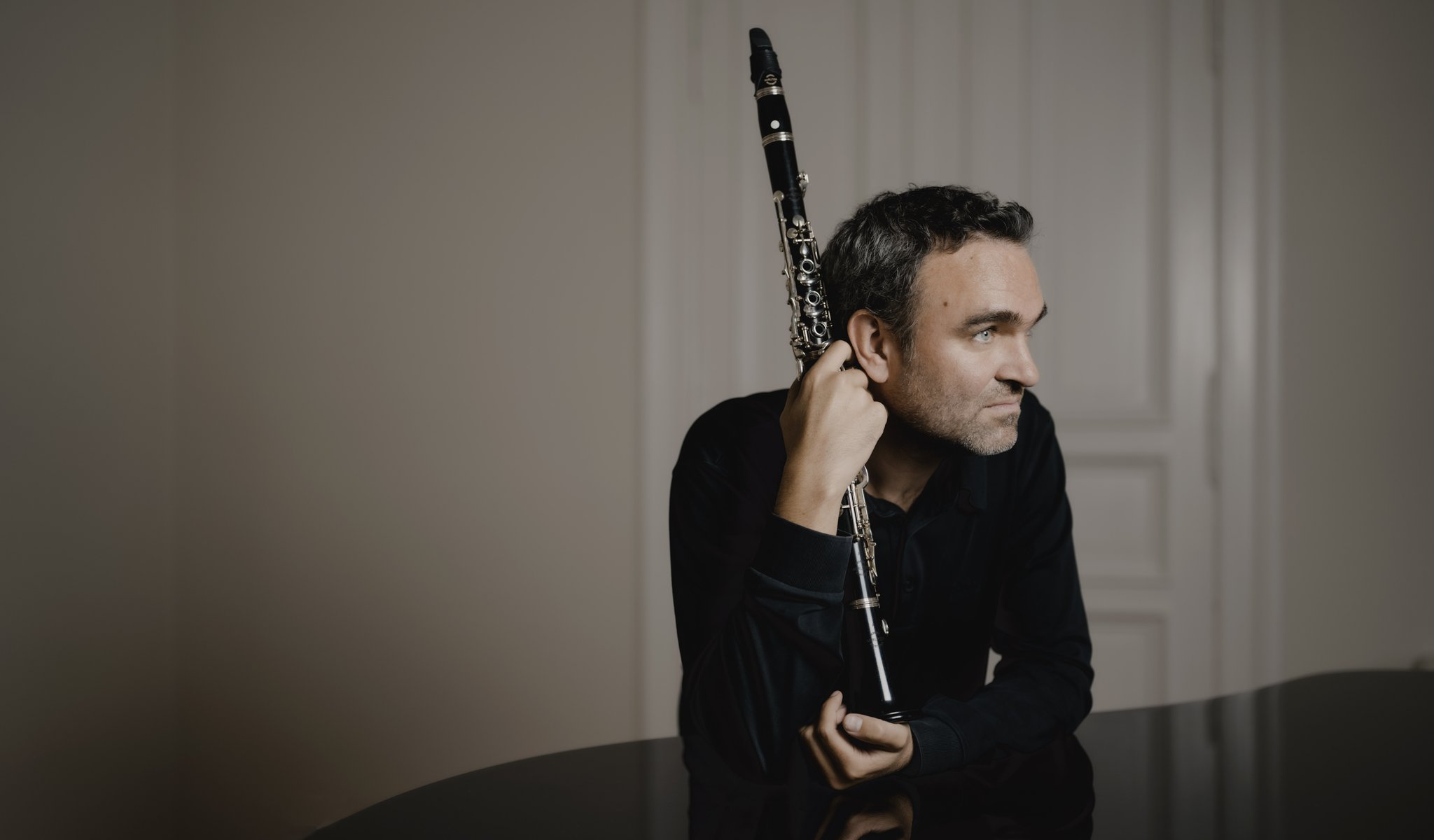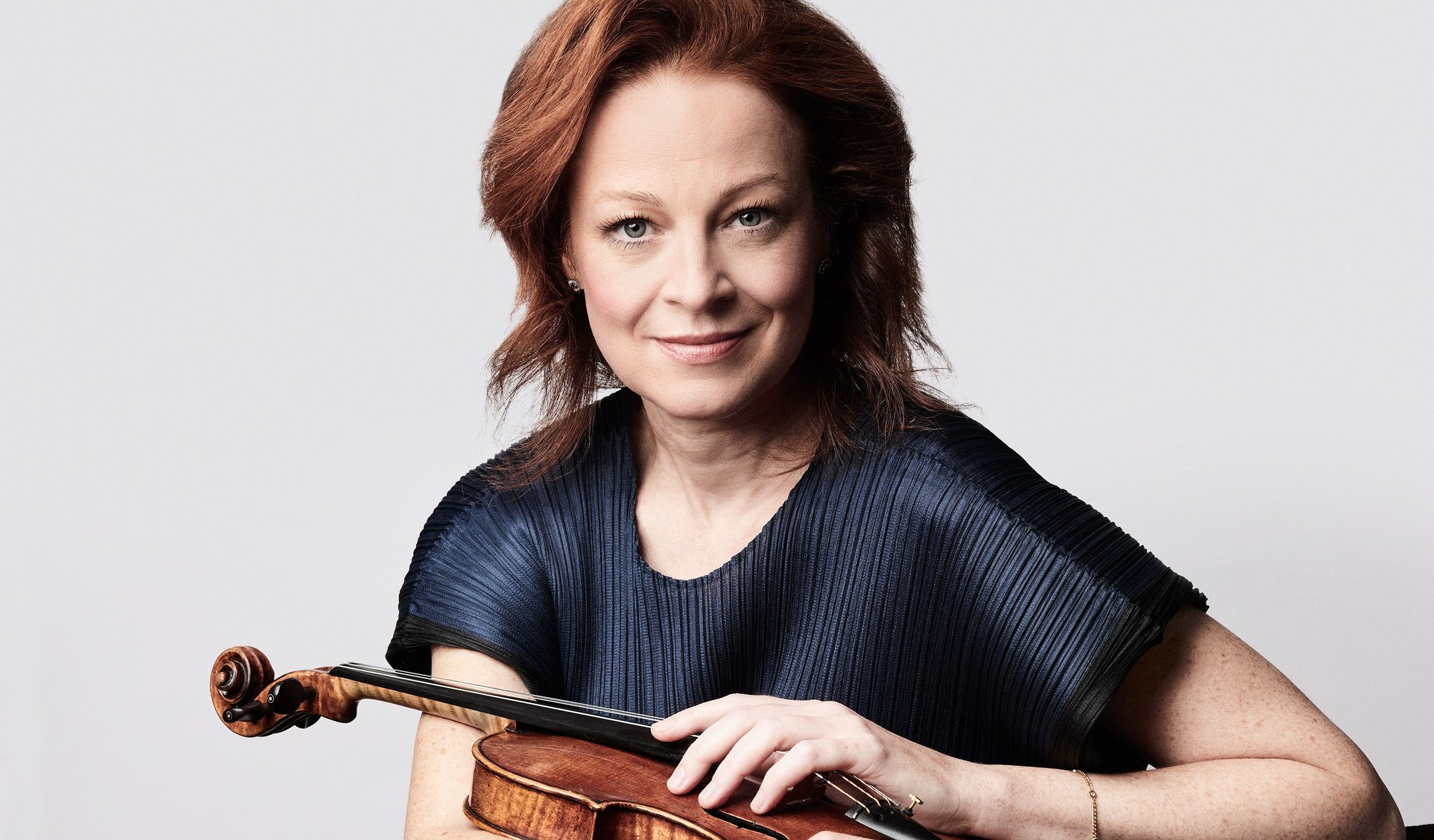

Orchestral concert: Mendelssohn, Widmann, Schumann
C. Widmann, J. Widmann
Program
Featuring
Other information
The event is about 2.5 hours long.
About the event
Jörg Widmann is a musical polymath par excellence. He is not only one of the greatest living masters of his instrument, the clarinet, but also an excellent composer, orchestrator and conductor. His compositions are palatable, entertaining, thought-provoking, and inventive. His programs are harmonious and carefully selected. He often juxtaposes his own pieces with compositions of Mendelssohn or Schumann – this time, a work by each of those composers will frame Widmann’s two pieces. The personal character of the evening will be further enhanced by the short solo performance of the clarinetist after the first half, and before the interval, the soloist of the composer’s violin concerto will be his sister, Carolin Widmann, Bavarian State Prize winner, to whom it is dedicated. The music depicting the bleak Scottish landscape and Widmann’s novel sounds will be resolved by Robert Schumann’s joyous composition, conjuring spring.
At the end of the 1829 concert season in London, Mendelssohn decided to travel the Scottish countryside in search of folk songs and, of course, beautiful scenery. In his notes he could only express in twenty-one bars of music what he felt when he first saw the Hebridean islands. It is as if his own ink drawing, A View of the Hebrides, had come to life through the notes. The overture based on the sketch was only completed in December 1830, and after various versions and titles - Overture to the Lonely Island, Fingal's Islands or Fingal's Cave - took its present form in 1835. The music focuses on painting the landscape and the atmosphere, starting with a broad, undulating melody and fading into a haze of soft pizzicato.
“The violin concerto is a sacred genre”, says Jörg Widmann, who has so far composed two such pieces. BFO’s audiences were treated to his First Violin Concerto in January 2021, and now, four years later, the orchestra will perform the Second. The piece composed in 2018 was premiered in Tokyo by Carolin Widmann, its dedicatee, conducted by her brother. In the short opening movement, the violin seems to be searching for its own sound. The core of the composition is an expansive song-like romance, a spiritual internal journey led by the soloist as the narrator. The finale closes the thematically restricted, yet infinitely colorful work with fragmented but light music.
“The most beautiful circus music ever written”. This is how a New York Times critic summed up the essence of Jörg Widmann’s first major solo clarinet piece. His work composed in 1993 elaborates on the innovations of Stravinsky and Carl Maria von Weber. The circus atmosphere is evoked by commedia dell'arte characters and their imaginary dialogue; the sounds of klezmer and jazz are mixed with romantic melodies. Widmann's aim is for the performer to take the title “Fantasie” seriously and to bring their own imagination to the performance, despite the strict constraints.
The first symphony is an important milestone in the oeuvre of all post-Beethoven composers. Schumann composed his first symphony during one of the happiest and therefore most productive periods of his life, after a few aborted attempts. The Beginning of Spring, Evening, Merry Playfellows, Spring in Full Bloom - these were the programmatic titles of the movements. And although Schumann eventually removed them, the piece, sketched in four days and written in less than a month, takes its nickname from him. The brass motto of the slow introduction appears several times throughout the work. It's there in the violin melody of the song-like slow movement, in the furious scherzo trio that follows without pause and in the finale that bids farewell to spring.
Did you know? The final version of Mendelssohn’s Overture premiered in Berlin on January 10, 1833, with the composer himself conducting. Jörg Widmann’s Violin Concerto No. 2 premiered in Tokyo on August 31, 2018, featuring Carolin Widmann as the soloist and the composer conducting. Jörg Widmann’s Fantasie premiered in Munich on March 1, 1994, performed by the composer. Schumann’s Symphony No. 1 was first performed in Leipzig on March 31, 1841, with Felix Mendelssohn conducting. This will be the first performance of Violin Concerto No. 2 by the BFO. The orchestra performed The Hebrides Overture most recently on June 2, 2019 (conductor: Leonidas Kavakos); its most recent performance of Fantasie was on January 24, 2016 (with the composer as the soloist) and its most recent performance of the Symphony was on April 29, 2024 (conductor: Paavo Järvi).
Contemporary events:Russian poet Alexander Pushkin’s Eugene Onegin, a novel in verse, was published in 1833 / French painter Paul Delaroche completed his painting The Execution of Lady Jane Grey in 1833 / The institution of slavery was abolished in Great Britain in 1833 (in Ceylon and other areas overseen by the East India Company, the same measure was only introduced ten years later) / The Roman Hall of the Museum of Fine Arts was opened to the public in 2018, after 70 years / Pursuant to the decision of Pope Francis, the Vatican declared the death penalty unacceptable in 2018 / The novel Brazil, by American author John Updike, was published in 1994 / Lajos Landerer and Gusztáv Heckenast produced in their printing shop the first edition of Pesti Hírlap, edited by Lajos Kossuth, in 1841 / French composer Adolphe Adam’s ballet Giselle premiered in Paris in 1841